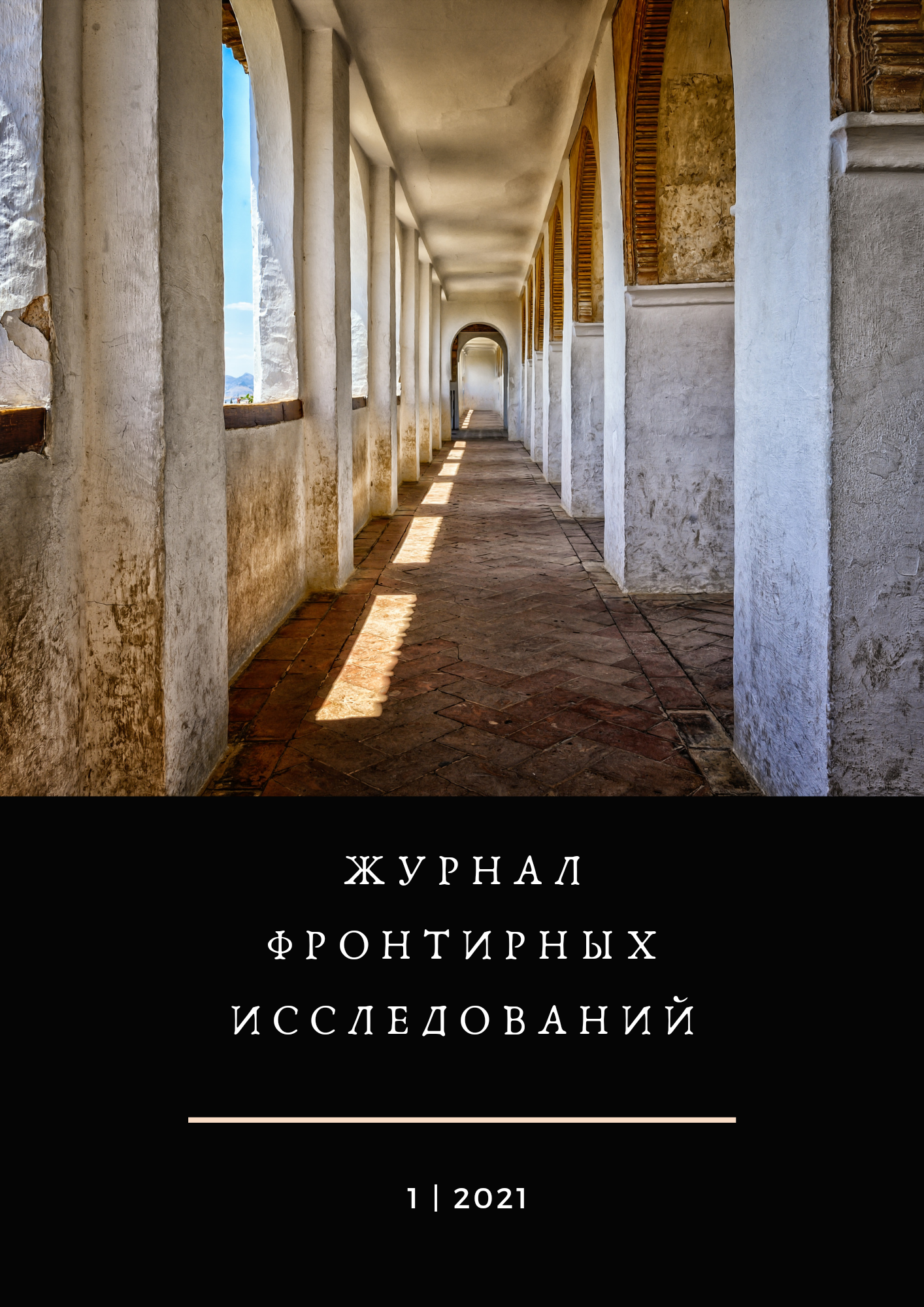Abstract
The article considers the dubious concept of “city limits” and “urban features”: territorial boundaries and imaginary urban features expressed in Russian by the same abstraction. As many concepts explicating ‘city’ and ‘urban’ remain confusing, we have tried to take the concept of external borders as a starting criterion to depict what is inside these boundaries and to discover the dialectical transformation in the dynamics of the intersection of material and immaterial boundaries of the so-called “urbanized environment”. M. Foucauldian “archeology” is taken for methodology (except for the description of the history of city boundaries). The spatial concept proposed as a defining analytical tool reveals additional possibilities for the study of social reality in the context of ‘philosophy of the city’. The urban contour is the outline of an abstract space, a mimetic place, both produced and productive. Having lost its clear boundaries, urban space, however, continues to ensure the coordination of flows and networks.
The research can be applicant to the clarification of the borders of identity and spatial boundaries of the city in order to refine the definition of the concept of “urban” environment, as well as in interdisciplinary studies of the fluidity of borders.
References
Andina, T. (2019). Reflections on the transgenerational community. Intergenerational boundaries and connections. Studia Culturae, (40), 7–16. (In Russian).
Andina, T. (2020). Transgenerazionalità: Una filosofia per le generazioni future [Transgenerationality: a philosophy for future generations]. Milano: Carocci editore. (In Italian).
Aristotle. (1983). Politics. Works: In four volumes (Vol. 4). Moscow: Mysl. (In Russian).
Bakhtin, M. M. (1972). Problems of Dostoevsky's Poetics. Moscow: Fiction Literature. (In Russian).
Baudrillard, J., & Nouvel, J. (2002). The singular objects of architecture. Minneapolis: University of Minnesota Press.
Burke, P. (2015). What is cultural history? Moscow: The Higher School of Economics Publishing House. (In Russian).
Burkhardt, J. (1996). Renaissance Culture in Italy: A Research Experience. Moscow: Yurist. (In Russian).
Cicero, M. T. (1994). The Dialogues. Moscow: Scientific-Publishing Center Ladomir - Nauka. (In Russian).
Deleuze, J. (2012). The New Archivist (Archaeology of Knowledge). In Archaeology of Knowledge. St. Petersburg: Humanitarian Academy Publishing Center. (In Russian).
Foucault, M. (2006a). Other spaces. In Intellectuals and Power: Selected Political Articles, Speeches, and Interviews (pp. 191–204). Moscow: Praxis. (In Russian).
Foucault, M. (2006b). Space, Knowledge, and Power. In Intellectuals and Power: Selected Political Articles, Speeches, and Interviews (pp. 215–237). Moscow: Praxis. (In Russian).
Foucault, M. (2011). Security, Territory, Population: A Course of Lectures delivered at the Collège de France during the 1977-1978 academic year. St. Petersburg: Nauka. (In Russian).
Le Goff, J. (2008). The Birth of Europe. Saint Petersburg: Alexandria. (In Russian).
Lefebvre, A. (2015). Space production (И. Stough, Trans.). Moscow: Strelka Press. (In Russian).
Mills, C. R. (2001). The Sociological Imagination (О. A. Oberemko, Trans.). Moscow: NOTA BENE Publishing House. (In Russian).
Mumford, L. (2011). The Myth of the Machine. Technology and the development of mankind. Moscow: Logos. (In Russian).
Pirni, A. (2018). La sfida della convivenza: Per un’etica interculturale [The Challenge of Living Together. Towards an intercultural ethics]. Pisa: ETS. (In Italian).
Pirni, A. (2020). Exclusion, Transition, and Recognition: Normative Archetypes for Crossing Urban Social Spaces. Journal of Frontier Studies, 5(1), 29–39. doi: 10.46539/jfs.2020.1.2939
Polybius. (1994). General History (F. G. Mishchenko, Trans.). St. Petersburg: Nauka; Juventa. (In Russian).
Rybakin, A. I. (2000). Dictionary of English Personal Names. Moscow: Astril; AST. (In Russian).
Strabo. (1994). Geography. Book V. Moscow: Ladomir. (In Russian).
Thierry, O. (2011). Urban communes in France in the Middle Ages. Moscow: URSS: LIBROCOM. (In Russian).
Troitskiy, S. (2018). The problem of terminological precision in studies on cultural exclusion zones. Rivista Di Estetica, (67), 165–180. doi: 10.4000/estetica.2772

This work is licensed under a Creative Commons Attribution 4.0 International License.

